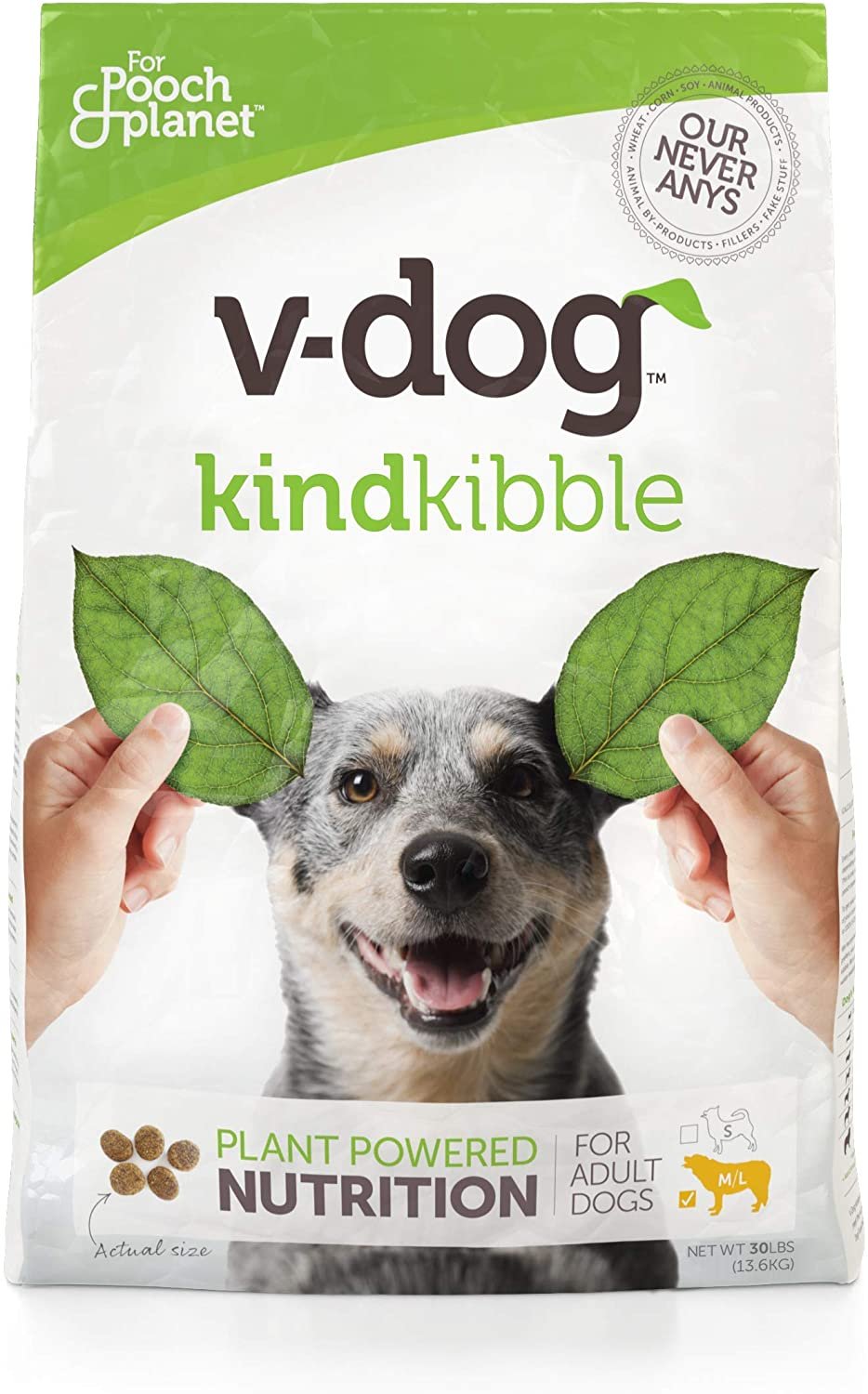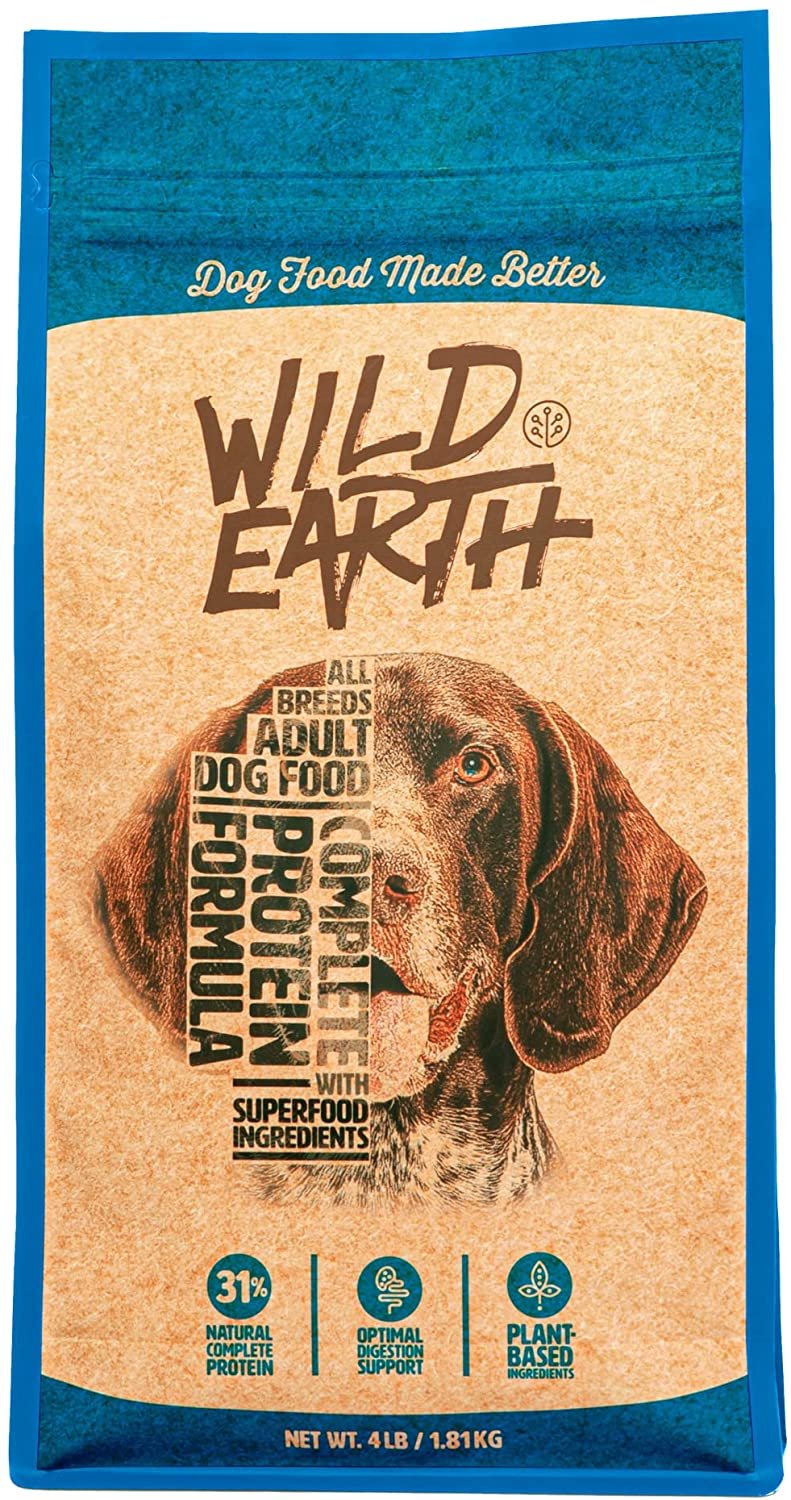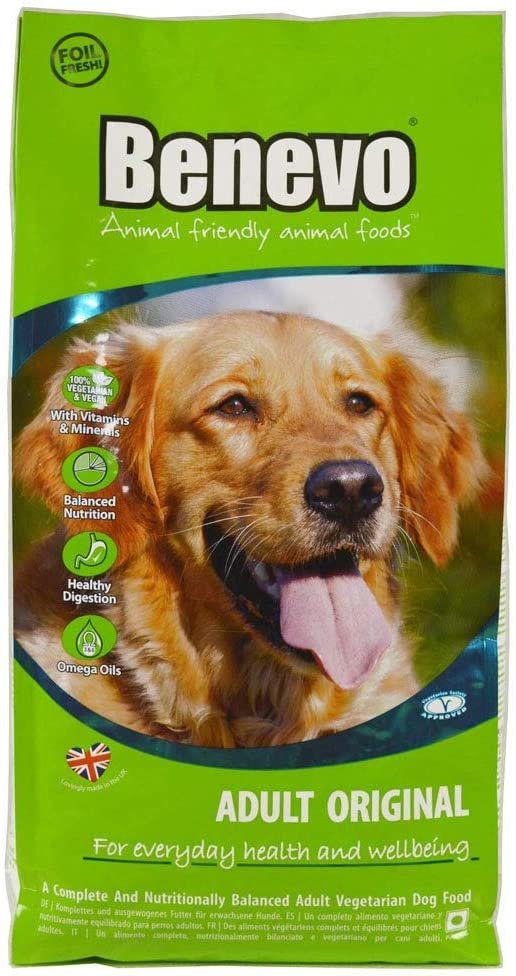Vegan protein for dogs
Dogs need protein, right? RIGHT!
Dogs need to eat meat to get protein, right? No, that is not quite right. Meat contains protein, yes, but so does a lot of other plant-based foods as well. Continue reading to get a complete guide of plant protein for dogs, the most important take aways and answers to the most common questions.
Key takeaways
(For those who rather hang out with their dog than reading this blog post)
👉 Protein is one of the most important components of a dog's diet
👉 Dogs need protein for the body to function optimally, for example for organs, muscles, new cell formation, blood and immune system
👉 The right amount of protein and the digestibility of the protein are essential for the dog's health
👉 All vegetables and meat contain protein. The amount and digestibility may differ
👉 Adult dogs need between 18-25 percent protein per day
👉 Puppies and pregnant dogs need between 22.5-29 percent protein per day
👉 Dogs do not benefit from an excessive protein intake
👉 Dogs have 10 essential amino acids. This means that the amino acid needs to be ingested via the diet
3 vegan protein-rich dog kibbles
Here are some of the best plant based protein dog foods. All of them contains the right amount of proteins for your pup and meet the nutritional levels established by the Association of American Feed Control Officials (AAFCO) and/or European Pet Food Industry Federation (FEDIAF) 🐶
Want to support? By shopping from the links above Dog and Vegan earns a small commission and gets supported.
Is plant-based protein good for dogs?
Non meat protein for dogs can be just as good as animal protein for dogs. Especially if the dog suffers from meat protein allergies. It is possible to give only plant-based protein to dogs as long as the diet has the right balance between available amino acids. Plant-based protein for dogs contains all the 10 essential amino acids the dog needs, but vegetables, legumes and grains often need to be combined to provide the full spectrum of the essential amino acids. It doesn’t matter to the dog's health if the protein comes from a plant-based or animal source, as long as the total intake of proteins is correct and balanced.
Vegetable protein for dogs can be more difficult for dogs to digest, which reduces protein uptake. Therefore, it can be good to know the biological value (BV) of different foods. More information about biological value (BV) can be found later in the article 👇
How do vegan dogs get protein?
Vegan and vegetarian dogs get protein through protein-rich plants such as vegetables, legumes and grains. If it’s a vegetarian dog, he or she can also get protein through e.g eggs and dairy products.
Did you know that all foods contain protein (including vegetables), but the amount and digestibility can differ greatly between different foods 🍏
Proteins are important
Taurine is one of many important proteins for dogs. It is common for vegan dogs to be deficient in taurine. Although taurine is a non-essential amino acid for dogs (this means that dogs can produce the amino acid themselves without having to ingest it via the diet), it’s still important that they get it from their food. Taurine is made up of two other amino acids, methionine and cysteine, of which methionine is an essential amino acid for dogs.
For dogs, taurine is needed for
🐶 eyes
🐶 reproduction
🐶 bile acid (for fat digestion)
🐶 healthy heart
Dilated cardiomyopathy (DCM) in dogs and cats is associated with insufficient taurine levels.
Taurine occurs naturally in meat, but up to half of the taurine disappears when heated, so synthetic taurine is usually added to kibble to prevent malnutrition.
L-carnitine is another amino acid that is non-essential, but which there is a risk of vegan dogs running low of. L-carnitine is produced in the kidneys by the two essential amino acids methionine and lysine. L-carnitine helps to convert fat into useful energy.
L- carnitine is necessary for
🐶 optimal heart
🐶 brain function
🐶 muscle function
Both taurine and l-carnitine should be found in high-quality vegan dog food.
What is the best vegan protein for dogs?
A good vegan protein source for dogs is soybeans as soy is one of the plants that has a complete amino acid profile.
Other good sources of meat-free protein for dogs include
🥕 chickpeas
🥕 green peas
🥕 potato
🥕 rice
🥕 lentils
🥕 bean
🥕 quinoa
Pea protein has a high protein content and contains all the ten essential amino acids, but since the amount of methionine and cysteine is low, it does not count as a complete protein. However, it is possible to supplement with, for example, rice that has a high content of methionine and cysteine.
Legumes, such as peas, lentils, chickpeas and beans, are packed with protein, fibre, vitamins and minerals. They also contribute with good taste and are far more climate-sustainable than meat.
Mushrooms also give a taste of umami (associated with meat). Koji (mushroom) is a complete protein that provides all the essential amino acids, along with omega fatty acids, digestive enzymes and probiotics to support gastrointestinal bacteria and can be used to advantage in food for vegan dogs.
Some of the best vegan protein sources for dogs are the following
🥕 soybeans
🥕 peas, lentils, chickpeas and beans
🥕 koji and mycoprotein
🥕 whole grains such as wheat, rye and rice
🥕 quinoa and potatoes
🥕 tofu, tempeh and seitan
🥕 dark green vegetables such as cabbage, spinach and broccoli
🥕 peanuts
🥕 seeds such as chia seeds and flax seeds
🥕 nutritional yeast / b-yeast
How much protein does a dog need?
An adult dog needs between 18-25 percent protein per day and puppies about 29 percent protein per day.
Protein is one of the most important components of a dog's diet. An adult dog's diet needs to consist of at least 18 percent protein according to The Association of American Feed Control Officials (AFFCO), for puppies and pregnant dogs, at least 22.5 percent of the diet needs to consist of protein. Puppies, pregnant and lactating dogs need extra protein to build new tissue. Growth can stop if a growing puppy does not get enough protein.
A common rule of thumb is that the dog should get 2 grams of protein per kilogram of ideal body weight and day. That is, if a dog weighs 15 kg, it should get about 30 grams of protein per day.
If you are thinking about which vegan or vegetarian dog food would have suited you and your dog best, you can check out our article on the best vegan dog food. The article contains a guide and comparison between all plant-based dog foods available in Sweden at the moment. Get to know the most important things to consider when choosing a vegan or vegetarian dog food and whether you can make your own vegan dog food or not.
Another way to find out how much protein a dog needs per day is to use this formula: 5 g crude protein x kg ^ 0.75 body weight.
This results in the following protein table
Did you know that
👤 Adult humans need about 1.1 grams of protein per kilogram of ideal body weight and day
🐶 A dog requires about 2 grams of protein per kilogram of ideal body weight and day
🙀 A cat requires about 4 grams of protein per kilogram of ideal body weight and day
Check out the European Pet Food Industry Federation (FEDIAF) to learn even more about dogs' protein needs and nutrition guide.
Why do dogs need protein?
Dogs need to get protein in order for organs, muscles, bones, blood, immune system, fur and claws to function optimally.
In addition to fat and carbohydrates, protein is the nutrient that can provide energy to the dog. Protein is also needed in the new formation of the dog's cells as these are constantly replaced in organs and tissues, as well as for maintenance and growth of the tissues.
It is important that the dog gets the right amount of protein and that the protein can be easily absorbed. Depending on the source of the protein and the preparation of the food, the absorption capacity may differ.
Amino acids
Proteins are made up of amino acids. There are several different amino acids and 10 of them are essential for dogs. Some of the amino acids can the body make by itself, and some of them have to come from food.
Proteins can be used for a variety of things in the body, including many hormones such as insulin and glucagon proteins that regulate blood sugar levels in the body. The proteins actin and myosin are used for muscle contraction. Antibodies used by the body's immune system are proteins. In the blood, there is the proteins hemoglobin which carries oxygen, retinol binding protein which carries vitamin A and transferrin which carries iron.
The 10 essential amino acids for dogs are
1️⃣ Phenylalanine
2️⃣ Histidine
3️⃣ Isoleucine
4️⃣ Leucine
5️⃣ Lysine
6️⃣ Methionine
7️⃣ Treonin
8️⃣ Tryptophan
9️⃣ Valin
🔟 Arginine
Most meats have complete amino acid profiles in the desired amount. This means that they contain all the essential amino acids in the right concentrations, while most vegetables must be combined to provide the full spectrum of essential amino acids.
Did you know that: The essential amino acids for children are the same as for dogs. Adults have only nine essential amino acids (all of the above except arginine).
Can a dog get too much protein?
Yes, dogs can get too much protein.
Excessive protein intake does not provide health benefits but can instead be harmful, leading to uremia and difficulty for the kidneys to filter the blood from harmful substances. Unlike carbohydrates and fats, proteins are not an ideal source of energy and excess protein can be stored in the body as fat. Dog food with a high protein content is often also calorie dense, which can be a contributing cause of obesity.
How does the dog absorb protein?
Dogs absorb protein from the diet via the small intestine. How much protein a dog can absorb depends, among other things, on the food's digestibility and the quality of the protein. Different foods have different degrees of digestibility, also called biological value (BV). Generally, meat and eggs have a high biological value, which means that the uptake capacity of these proteins is higher. Food can therefore have a high protein content, but a low biological value, which would mean that the dog can only assimilate a small part of the protein. Eggs are in these respects a good source of protein as it has a biological value of 94% and is a complete protein (contains all the ten essential amino acids for dogs). Therefore, eggs may be a good option for vegetarian dogs. Soybeans are also a complete protein and have a biological value of 96% and are therefore suitable for vegan dogs. Additional examples of foods biological value are: quinoa 83%, rice 83%, tempeh 78%, beef 74% and tofu 64%.




